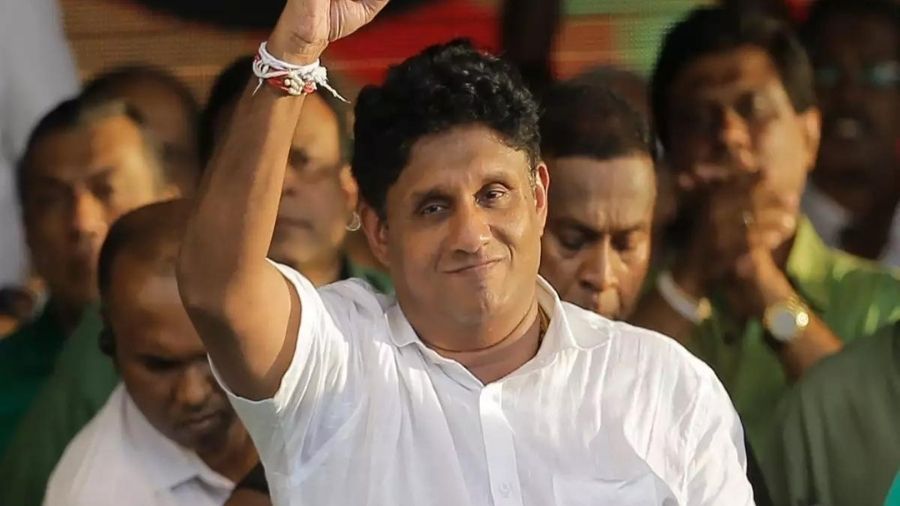Sri Lanka's main Opposition SJB on Thursday presented a constitutional amendment bill that among other provisions seeks to abolish the presidential system of governance, in existence in the country since 1978, and replace it with a system that reinforces constitutional democracy.
The move by the Samagi Jana Balavegaya (SJB) party came in the backdrop of massive protests demanding the resignation of President Gotabaya Rajapaksa and his Sri Lanka Podujana (Peramuna)-led government over the country's worst economic crisis.
The SJB presented the draft 21st constitution amendment bill to the secretary-general of parliament with proposals including the abolition of the current executive presidential system.
"We have handed over to the Speaker our proposal to abolish the executive presidential system," main Opposition leader Sajith Premadasa told Parliament.
The SJB document proposes to abolish the executive presidential system and replace it with a system that reinforces constitutional democracy.
While the president will remain the head of state and the commander in chief, the president has no personal discretion in appointing or dismissing the prime minister, according to the proposal.
The prime minister shall be the head of the Cabinet of ministers and the ministers are to be appointed by the president on the prime minister's advice, it adds.
The amendment, while seeking to annul the 20th Amendment adopted in 2020, aims to restore the 19th Amendment to the Constitution to curb the powers of the president and empower Parliament.
The 19A adopted in 2015 pruned presidential powers by empowering the 225-member Parliament above the executive president.
However, the 19A was scrapped after prime minister Mahinda Rajapaksa's younger brother Gotabaya Rajapaksa won the November 2019 presidential election.
The powerful Rajapaksa family tightened their grip on power after their massive victory in the general elections in August 2020 which allowed them to amend the Constitution to restore presidential powers and install close family members in key positions.
Gotabaya Rajapaksa is under pressure to quit along with his family as street protests have raged over the government's mishandling of the island nation's worst-ever economic crisis.
The demand is to set up an interim cabinet of all parties and restore the 19A which would deprive Gotabaya Rajapaksa of the full powers of the presidency.
In his 2019 presidential bid, Gotabaya Rajapaksa won a convincing mandate for a presidency during which he sought full presidential powers over Parliament.
Sri Lanka is grappling with an unprecedented economic turmoil since its independence from Britain in 1948.
The crisis is caused in part by a lack of foreign currency, which has meant that the country cannot afford to pay for imports of staple foods and fuel, leading to acute shortages and very high prices.
The island nation is witnessing large-scale protests against the government's mishandling of the debt-ridden economy - the worst-ever economic crisis in the country's history.
Last week, the Sri Lankan government said it would temporarily default on USD 35.5 billion in foreign debt as the pandemic and the war in Ukraine made it impossible to make payments to overseas creditors.
 Wednesday, 22 January 2025
Wednesday, 22 January 2025










